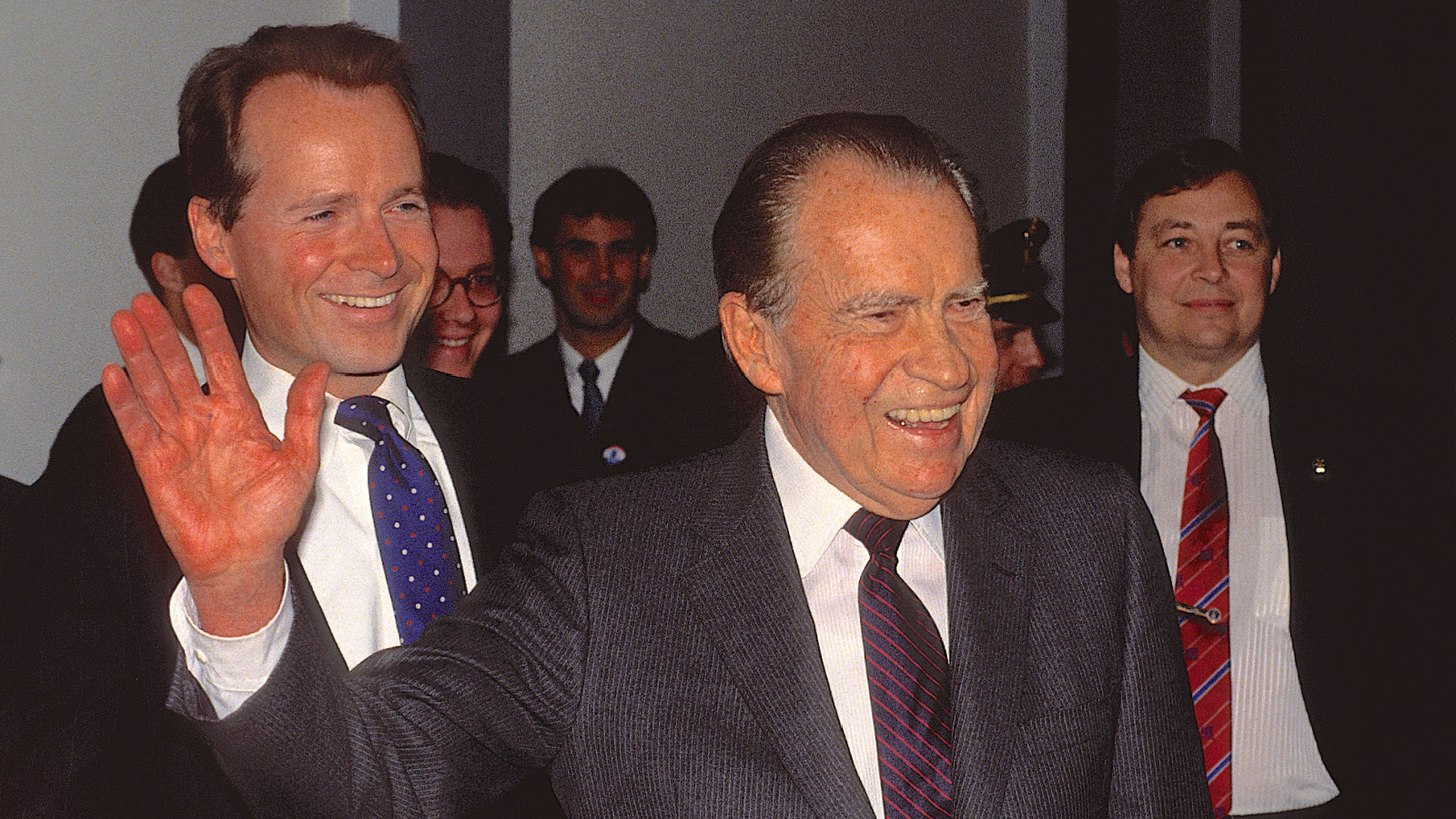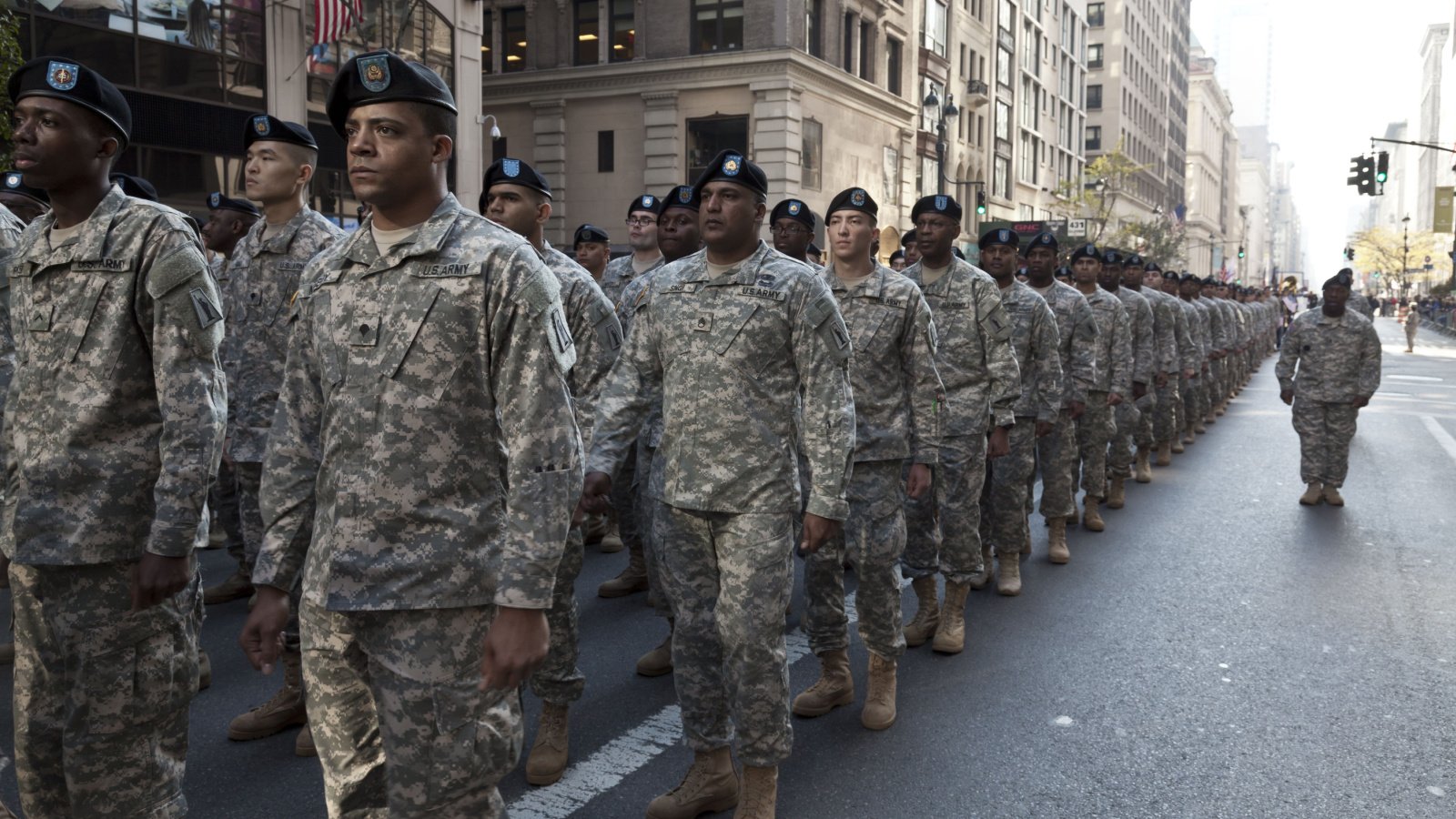During the 1970s, the world witnessed political upheaval, social change, and radical cultural shifts that set the trajectory of modern history. Let’s reflect on the shocking and significant events that defined the decade.
Watergate Scandal

The Watergate scandal, leading to President Nixon’s resignation, sent shockwaves through the American political landscape. It began with a break-in at the Democratic National Committee headquarters and unraveled a series of political spying and sabotage operations. Nixon’s resignation marked the first and only resignation of a U.S. president.
Vietnam War Ends

The Vietnam War ended nearly two decades of conflict. The iconic image of the last helicopter evacuating Americans from Saigon symbolizes the United States’ chaotic withdrawal. This moment reshaped U.S. foreign policy and public opinion on military engagement.
Oil Crisis of 1973

The 1973 oil crisis began when OAPEC (Organization of Arab Petroleum Exporting Countries) proclaimed an oil embargo, targeting nations perceived as supporting Israel during the Yom Kippur War. This led to severe oil shortages and long lines at gas stations in the U.S. and other countries, dramatically affecting global economics and politics.
Munich Olympics Massacre

During the 1972 Munich Olympics, a Palestinian terrorist group known as Black September took eleven Israeli Olympic team members hostage. The attempt to rescue the hostages ended tragically, with all hostages, five terrorists, and a German police officer killed. This event marked a grim moment in Olympic history.
Roe vs. Wade

The landmark Supreme Court decision in 1973, Roe vs. Wade, legalized abortion across the United States. This decision provided women with the legal right to choose abortion and sparked ongoing debates and divisions over reproductive rights. It remains one of the most controversial judicial rulings in American history.
Kent State Shooting
In 1970, the Kent State shooting saw the Ohio National Guard fire on students protesting the Vietnam War at Kent State University, killing four and wounding nine, heightening national opposition to the Vietnam War. The image of a dead student and a screaming girl became a symbol of the anti-war movement.
First Test-Tube Baby

In 1978, Louise Brown, the world’s first baby conceived via in vitro fertilization (IVF), was born in England. This groundbreaking scientific achievement opened up new possibilities for reproductive technologies and sparked ethical debates that continue to this day. Louise Brown’s birth was a pivotal moment in medical history.
Jonestown Massacre

In 1978, over 900 members of the Peoples Temple, led by Jim Jones, died in a mass suicide-murder in Jonestown, Guyana. This tragedy occurred after Congressman Leo Ryan was murdered during a fact-finding mission to the commune. The Jonestown Massacre stands as a stark reminder of the dangers of cult dynamics and charismatic leadership gone awry.
Skylab Launched

Skylab, the United States’ first space station, was launched into orbit in 1973. Although it encountered significant technical issues early on, Skylab’s three manned missions gathered vast amounts of data about space and the Earth. This project marked a significant step in space exploration, paving the way for long-duration human missions.
Disco Demolition Night

Disco Demolition Night in 1979, intended as a promotional stunt at a baseball game in Chicago, turned chaotic as anti-disco sentiment reached its peak. The event ended in a riot when thousands of disco records were destroyed on the field, causing game cancellation and significant property damage.
Camp David Accords

The Camp David Accords in 1978 were a significant diplomatic achievement brokered by U.S. President Jimmy Carter between Israel and Egypt. This agreement led Egypt to become the first Arab country to officially recognize Israel, which drastically shifted Middle Eastern political dynamics. The Accords remain a landmark in diplomatic efforts in the region.
Patty Hearst Kidnapping

In 1974, Patty Hearst, a newspaper heiress, was kidnapped by the Symbionese Liberation Army (SLA). She later claimed to have joined the group’s cause, infamously participating in a bank robbery. Hearst’s case became a media sensation, highlighting issues of brainwashing and Stockholm Syndrome.
The Rise of Personal Computers

The 1970s saw the birth of the personal computer, with significant developments like the Apple II launching in 1977. These early computers, which made technology accessible to everyday people, revolutionized how businesses operated and how individuals interacted with digital technology.
The Fall of Saigon

The Fall of Saigon in 1975 marked the end of the Vietnam War, with North Vietnamese forces capturing Saigon (now Ho Chi Minh City), leading to the unification of Vietnam under communist control. This event not only signaled a significant U.S. foreign policy failure but also triggered a mass exodus of Vietnamese refugees.
The Introduction of the Concorde

In 1976, the Concorde began commercial flights, symbolizing a new era in air travel with its ability to fly at supersonic speeds. Although economically unsustainable in the long run, the Concorde represented a major technological leap and continued to capture the public’s imagination with its speed and luxury.
The Beatles Break Up

In 1970, The Beatles, one of the most influential music groups in history, officially disbanded. This event marked the end of an era in music and had a profound impact on the music industry and popular culture worldwide. The breakup led to the members pursuing successful solo careers, but fans still lament the loss of their collective genius.
Blackout of 1977

The New York City blackout of 1977 lasted for 25 hours, leading to widespread looting and arson. This event highlighted the city’s economic and social struggles during a period of financial crisis and high crime rates. The blackout spurred various measures to improve the city’s infrastructure and emergency response strategies.
1970 Bhola Cyclone

The Bhola cyclone struck East Pakistan (now Bangladesh) and West Bengal in 1970, becoming the deadliest tropical cyclone in history with deaths estimated up to 500,000. This natural disaster caused immense loss of life and precipitated political upheavals that led to the independence of Bangladesh.
First Woman Prime Minister of Israel

In 1969, Golda Meir was elected Prime Minister of Israel, becoming the world’s third woman to hold such an office. Her tenure, which continued into the early 1970s, was marked by significant political and military challenges, including the Yom Kippur War. Meir’s leadership has been both praised for her toughness and criticized for her role in the war’s failings.
The Aswan High Dam Completion

Completed in 1970, the Aswan High Dam in Egypt was a massive engineering project to control the flooding of the Nile, provided increased water storage for irrigation, and generated substantial hydroelectric power. However, it also caused the displacement of communities and the flooding of ancient sites.
Angela Davis Acquitted

In 1972, activist Angela Davis was acquitted in a high-profile trial involving kidnapping, conspiracy, and murder charges. Her case became a global symbol of racial injustice in America and the power of international solidarity movements. Davis’ acquittal was celebrated around the world and she continued to be an influential advocate for civil rights and social justice.
Creation of the Environmental Protection Agency

The U.S. Environmental Protection Agency (EPA) was created in 1970 in response to growing public concern over pollution and environmental degradation. This federal agency was tasked with regulating environmental policies and enforcing standards to protect air, water, and land.
SALT I Treaty

The Strategic Arms Limitation Talks (SALT I) treaty, signed in 1972 between the United States and the Soviet Union, was a landmark agreement in the effort to control the arms race during the Cold War. This treaty helped to limit the number of intercontinental ballistic missiles (ICBMs) and submarine-launched ballistic missiles (SLBMs) each country could deploy.









Auch beschränkt sich die Auswahl an kostenlosen Casino Spielen nicht auf Online Slots.
Damit Sie den Überblick behalten und neue Favoriten finden können, helfen wir Ihnen alle Spiele wie im Online Casino kostenlos
und ohne Anmeldung auszuprobieren. Casino.guru sieht sich als eine
unabhängige Informationsplattform über Online Casinos und Online Casinospiele, die von keinem Glücksspielanbieter oder irgendeiner anderen Instanz kontrolliert
wird. Würden diese kostenlosen Spiele anders funktionieren, so wäre dies irreführend und würde gegen alle guten Sitten verstoßen. Wenn
Spiele eines bestimmten Spieleanbieters kostenlos gespielt werden können, haben wir diese mit ziemlicher
Sicherheit in unserer Datenbank für Sie vorrätig.
Bei der überwiegenden Mehrheit der Spiele handelt es sich jedoch um Slotspiele.
Weiter oben auf dieser Seite finden Sie alle unsere Empfehlungen hier.
Es gibt aber einige Online Varianten, bei denen man sich
durchaus gut unterhalten fühlt. So können Sie alle Wettarten und Einsatzmuster ganz ohne Risiko ausprobieren und
herausfinden, womit Sie den meisten Erfolg und die besten Gewinnchancen haben. Zudem können Sie nebenbei
immer wieder einen Blick in die Roulette Regeln zur entsprechenden Variante werfen und
dies direkt beim Gratisspiel ausprobieren. So finden Sie aus allen Top-Games garantiert ein Spiel, das Ihnen besonders gut gefällt.
References:
https://online-spielhallen.de/beste-online-casino-app-2025-schnell-sicher-einfach/
The Live Casino game category in the Skycrown Casino lobby portrays somewhat
more than 60 games. Go through the following steps, and you’ll be able to play pokies
at Skycrown Casino for fun. When our team was conducting this review,
there were five active tournaments on the website.
The game loading times are consistently good across different devices.
Here’s where SkyCrown really tries to shine, and honestly, they do
a pretty decent job. Nothing kills the mood like waiting 30
seconds for a slot machine to load when you’re ready to play.
Therefore, we can say that a no deposit bonus may be listed by the casino soon. Once you complete your
registration process at Sky Crown and become a member, you are
welcomed with generous deposit bonuses. With the support of many software gaming companies,
Sky Crown Casino is able to offer a world-class gambling experience to its customers.
References:
https://blackcoin.co/4-top-tips-for-winning-big-at-online-poker/
State regulations for online gambling vary significantly across Australia,
affecting land-based casinos and sports betting.
A loophole in the Act allows social casinos to operate without regulation,
as they are not classified as gambling sites. The anonymity of cryptocurrencies is a major benefit,
appealing to players seeking a secure and private gambling experience.
Many cryptocurrency casinos provide substantial welcome bonuses,
sometimes up to 6 BTC. The widespread acceptance of
credit and debit cards allows players to easily fund their accounts
and enjoy their favorite games without hassle. These promotions provide a great
chance to try different games and experience the casino environment without financial risk.
The top Indian casinos offer a wide range of payment methods to choose
from, allowing you to choose your preferred option to deposit
and withdraw. Casino table games such as blackjack,
roulette, baccarat, and poker are also extremely popular among Indian players.
Among the different gameplay features, the one that is often featured
most prominently at Indian casinos is the progressive jackpot.
These games are popular thanks to their variety; no two slot games are
the same, with each offering a unique combination of theme, design, and gameplay features.
These promotions match a percentage of your deposit in bonus funds, giving you more money to play with.
Their library encompasses slots, table games, live casino
games, instant win games, and more.
Each New Jersey online casino’s level of customer
care is described in detail by the members of our staff.
Bonus terms and restrictions vary from one online casino to the
next. NJCasino ensures that all of the casinos and games we examine are licensed
and regulated by the Division of Gaming Enforcement (DGE).
Stay up to date with everything going on in the American online casino market by checking out our news
articles! Getting started at an online casino in India is easy to do; once you’ve chosen your preferred site from
our list of options, follow the link and click the Sign Up or Register button. These sites
are often unregulated and do not offer the same security
features as our recommended casinos.
References:
https://blackcoin.co/18_what-is-a-high-roller-at-a-casino-what-high-roller-actually-means_rewrite_1/
paypal online casinos
References:
https://internskill.in/
online betting with paypal winnersbet
References:
https://healthjobslounge.com